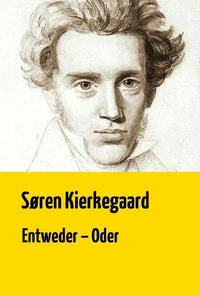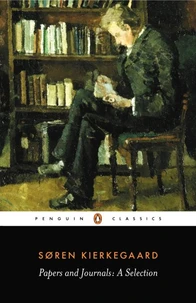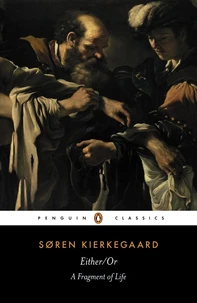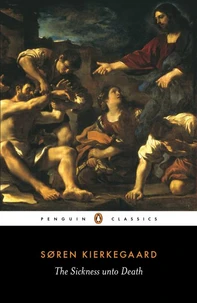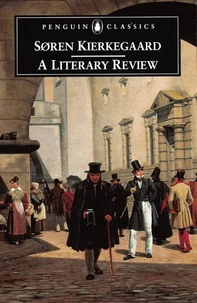Fear and Trembling. Dialectical Lyric by Johannes De Silentio
Par : ,Formats :
Disponible dans votre compte client Decitre ou Furet du Nord dès validation de votre commande. Le format ePub protégé est :
- Compatible avec une lecture sur My Vivlio (smartphone, tablette, ordinateur)
- Compatible avec une lecture sur liseuses Vivlio
- Pour les liseuses autres que Vivlio, vous devez utiliser le logiciel Adobe Digital Edition. Non compatible avec la lecture sur les liseuses Kindle, Remarkable et Sony
- Non compatible avec un achat hors France métropolitaine
 , qui est-ce ?
, qui est-ce ?Notre partenaire de plateforme de lecture numérique où vous retrouverez l'ensemble de vos ebooks gratuitement
Pour en savoir plus sur nos ebooks, consultez notre aide en ligne ici
- Nombre de pages160
- FormatePub
- ISBN0-14-190623-5
- EAN9780141906232
- Date de parution29/08/1985
- Protection num.Adobe DRM
- Infos supplémentairesepub
- ÉditeurPENGUIN
Résumé
Kierkegaard's infamous and hugely influential philosophical work on faith, choice and sacrificeIn Fear and Trembling Kierkegaard, writing under the pseudonym Johannes de silentio, expounds his personal view of religion through the scene in Genesis in which Abraham prepares to kill his son at God's command. Kierkegaard believed Abraham's unreserved obedience to be the essential leap of faith needed to make a full commitment to his religion.
The conviction shown in this polemic - that an individual can have an exceptional mission in life - informed all his later writings, and was also hugely influential for both Protestant theology and the existentialist movement. Translated with an Introduction by Alastair Hannay
The conviction shown in this polemic - that an individual can have an exceptional mission in life - informed all his later writings, and was also hugely influential for both Protestant theology and the existentialist movement. Translated with an Introduction by Alastair Hannay
Kierkegaard's infamous and hugely influential philosophical work on faith, choice and sacrificeIn Fear and Trembling Kierkegaard, writing under the pseudonym Johannes de silentio, expounds his personal view of religion through the scene in Genesis in which Abraham prepares to kill his son at God's command. Kierkegaard believed Abraham's unreserved obedience to be the essential leap of faith needed to make a full commitment to his religion.
The conviction shown in this polemic - that an individual can have an exceptional mission in life - informed all his later writings, and was also hugely influential for both Protestant theology and the existentialist movement. Translated with an Introduction by Alastair Hannay
The conviction shown in this polemic - that an individual can have an exceptional mission in life - informed all his later writings, and was also hugely influential for both Protestant theology and the existentialist movement. Translated with an Introduction by Alastair Hannay
















